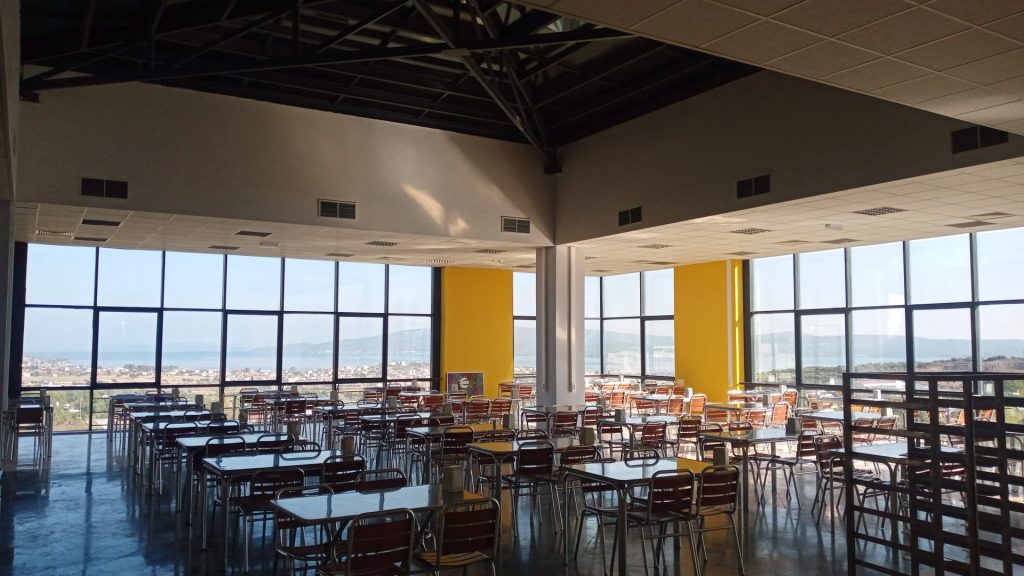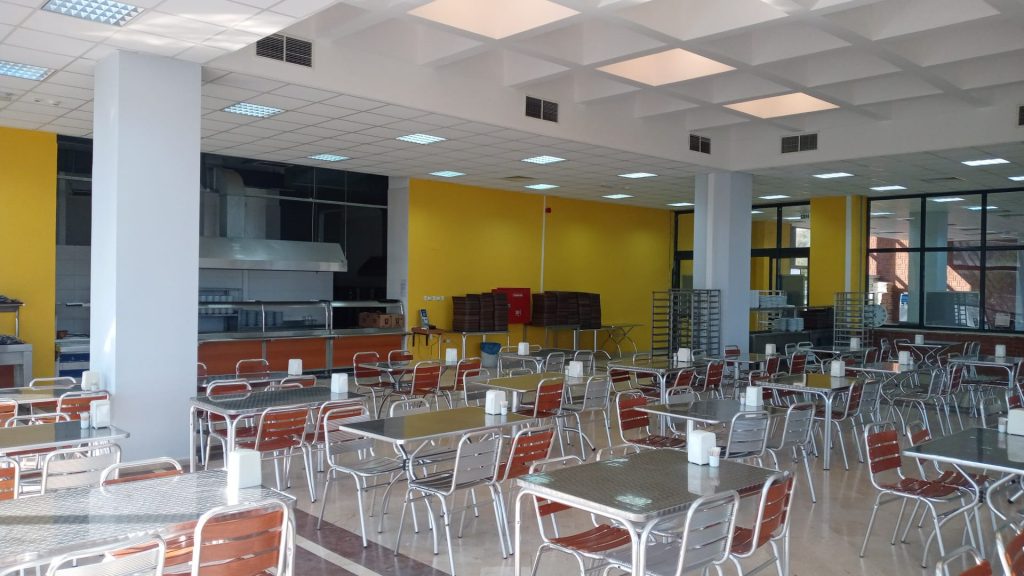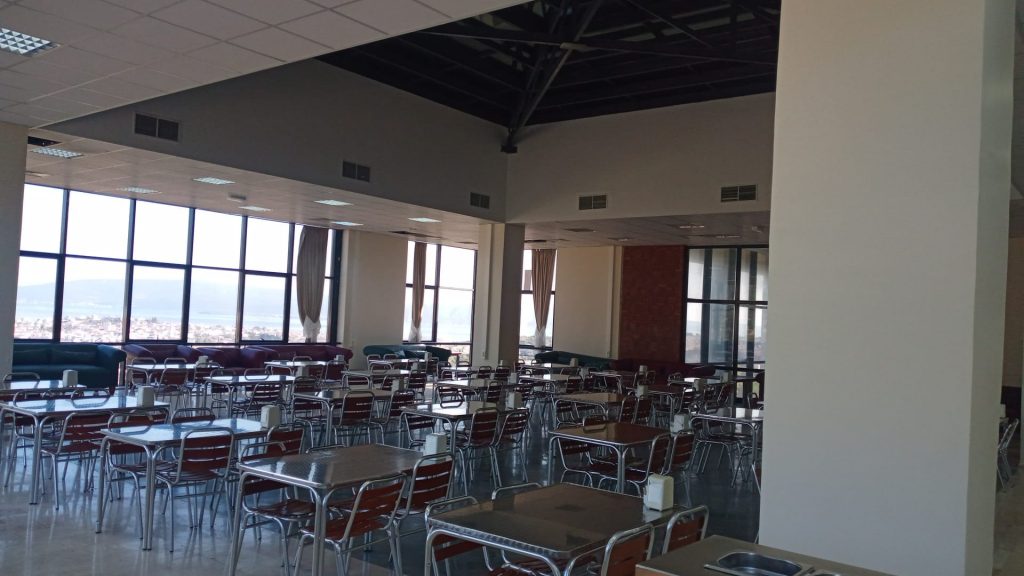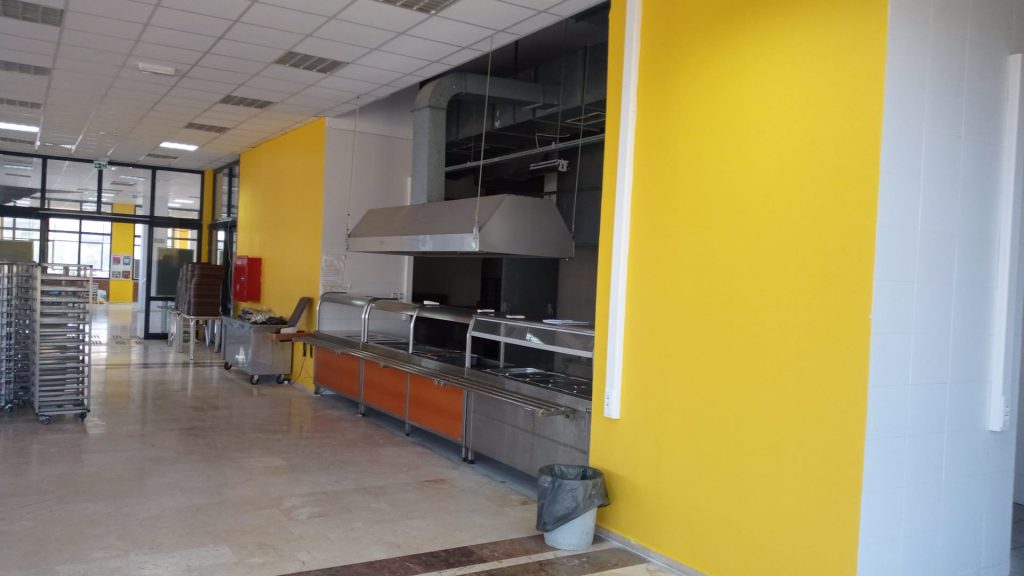OUR DINING HALL
The Central Cafeteria
IZTECH Central Cafeteria, affiliated to the Department of Health Culture and Sports, provides food service in order to ensure healthy and balanced nutrition of students and staff. The menus are planned in line with the principles of adequate and balanced nutrition under the supervision of the Nutrition Services Unit.
Hygiene rules are strictly followed in food production processes and all stages are regularly inspected. All foodstuffs used must comply with the production permit of the Ministry of Agriculture and Forestry, Turkish Food Codex and/or TSE standards. The personnel working in the cafeteria receive hygiene training and quality control processes are maintained through internal audits. Necessary routine analyses are carried out within the scope of food safety and sampling procedures are applied.
Quality, hygiene and satisfaction principles are prioritised in our catering services; vegan, vegetarian and gluten-free menu options are offered, taking into account nutritional sensitivities and health conditions. Students and staff who wish to request a gluten-free menu should apply to the Nutrition Services Unit of the Department of Health Culture and Sports with their health reports documenting their gluten allergy.
You can follow the monthly published menus and your card balance with the Dining Control System website. You can organise your reservations for vegan, vegetarian and gluten-free menus.
For any comments, suggestions and requests regarding our services, you can send an e-mail to sksbeslenme@iyte.edu.tr or contact the Department of Health Culture and Sports.




